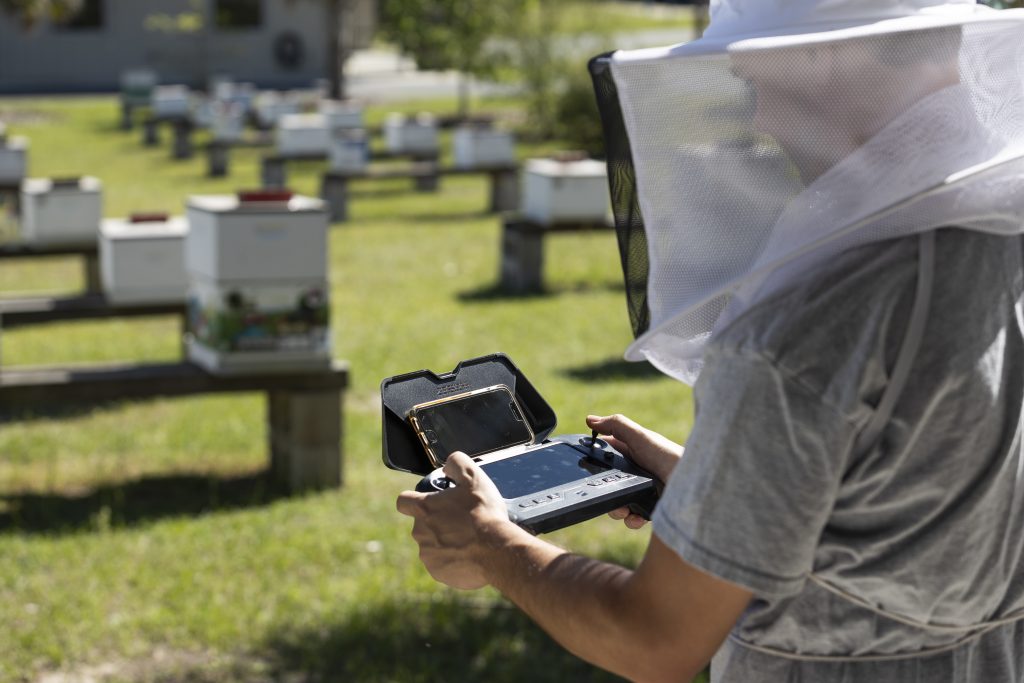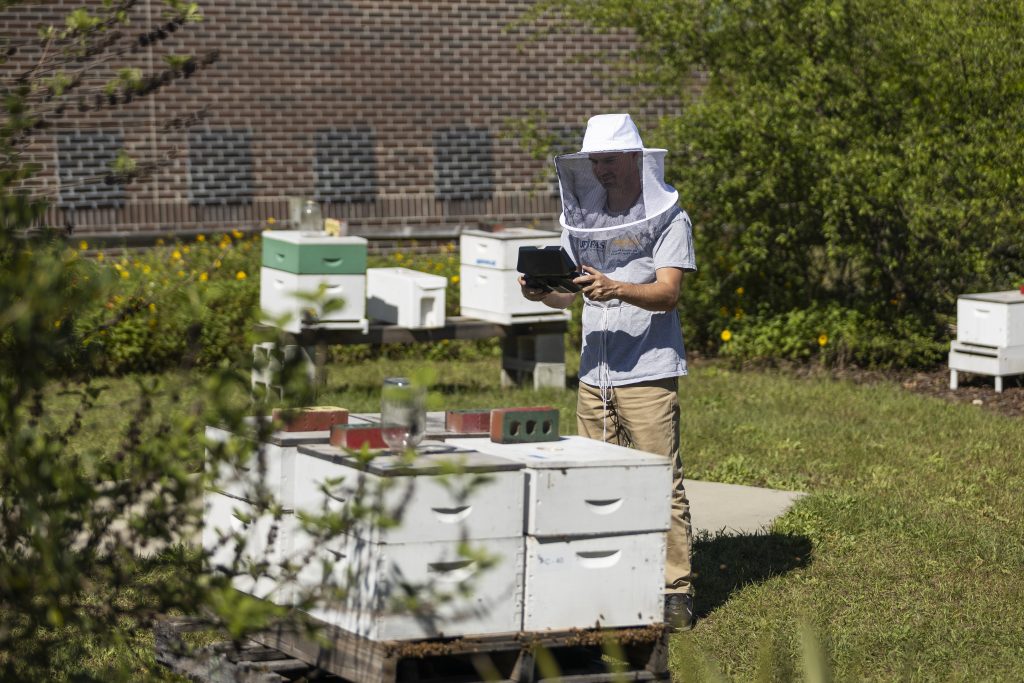Today’s beekeepers have a lot on their plate. Trying to keep ahead of colony collapse, pests and economic factors, it isn’t easy being in the bee business.
On top of that, sometimes the bees just won’t do what you want them to do. Until now, that is.
University of Florida Institute of Food and Agricultural Sciences (UF/IFAS) researchers have developed a remote-controlled behavioral modification device that tells bees where to go, what to do and even when not to sting.
Called the Solar-powered Winged Apis Remote Manager – or SWARM – the device consists of a transmitter and a receiver. The receiver is a retrofitted commercial drone remote, and the transmitter is a thin wireless connectivity coating that is sprayed onto bees’ antennas to send signals via Bluetooth.

The Bluetooth prompt them to act per the researcher’s instructions, which can be sent via the remote for navigation and via an app for behavioral-specific modification.
“We understand the pressures the modern beekeeper faces, and this apparatus helps alleviate some of those stresses, like the unpredictable nature of hive movement,” said Andrew Short, chair of the UF/IFAS entomology and nematology department.
The app, developed by the UF/IFAS Honey Bee Research and Extension Lab, includes features such as a “no sting” button for when beekeepers are doing hive maintenance, an “increase reproduction” signal to the queen and a text-to-waggle translation system that sends messages to the entire colony. Such tested messages include “There’s a storm coming tomorrow, so stay close to the hive,” and “Please do not sting the new queen.”
The navigational controls make it possible to direct a specific hive’s drones to particular flowers, thereby cultivating flower-specific honey. Researchers believe these controls can also be used by farmers to direct bees to pollinate specific crops.

The short-range wireless spray is solar-powered, but bees can get a boost to their antenna coating’s power supply through a fly-in wireless charging station located in the middle of the UF Honey Bee Lab hive staging area.
“UF/IFAS’ leadership in the beekeeping industry is unparalleled,” Short said. “There is going to be a significant amount of buzz around this innovation as we work to move forward with this groundbreaking research.”

We hope you enjoyed April Fool’s Day 2024!
###
ABOUT UF/IFAS
The mission of the University of Florida Institute of Food and Agricultural Sciences (UF/IFAS) is to develop knowledge relevant to agricultural, human and natural resources and to make that knowledge available to sustain and enhance the quality of human life. With more than a dozen research facilities, 67 county Extension offices, and award-winning students and faculty in the UF College of Agricultural and Life Sciences, UF/IFAS brings science-based solutions to the state’s agricultural and natural resources industries, and all Florida residents.
 2
2
